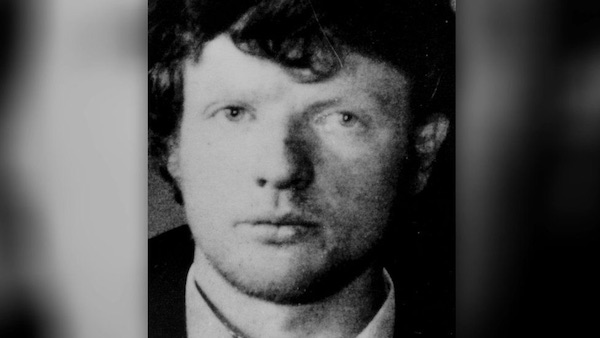
The family of Paddy McElhone, who was aged 24 when he was shot and killed by a British soldier near his Tyrone home, have said the truth of his 1974 murder has finally been heard at an inquest.
The young farmer from Limehill, Pomeroy, was shot in the back by a British soldier from the First Battalion, the Royal Regiment of Wales.
The inquest into the killing, the first in a new series of inquests into deaths associated with the conflict, was held in Omagh courthouse.
The shooting dead of the young farmer by the British Army was “unjustified”, the coroner admitted.
Presiding coroner Judge Siobhan Keegan said: “Paddy McElhone was an innocent man shot in cold blood without warning when he was no threat to anyone.”
He was not on any list as associated with the IRA and was an innocent man from a humble background, she said. There was also no dispute over he identity of the soldier who shot him.
Paddy McElhone had been working in the fields and had just returned home for his dinner when he was asked to go outside with members of a British Army patrol. He was taken to a meadow and shot once, penetrating his chest and killing him instantly.
Alun Jones was charged with murder on August 9 1974, but acquitted of that charge the following year by a judge who sat without a jury. He has since died.
Ms Keegan said Jones had intended to shoot the victim and that there was no evidence Paddy was running away. She added he was not acting in a threatening fashion or any way that justified shooting him.
The shooting had “not been justified” by the British government, she noted.
She could also find no valid reason why the soldier and the unarmed victim were in the field. The soldier was not acting in accordance with “yellow card” rules which governed the British Army’s engagements.
However, she made no finding on whether foul language and cheering was displayed by soldiers after the incident, as alleged locally, although she criticised the British Army’s response in subsequently withholding information.
In a statement, Mr McElhone’s family said their parents had gone to their graves “broken-hearted”.
“As a family we feel that today Judge Keegan at this inquest has at long last exonerated Paddy in full. The truth of Paddy’s killing by a British soldier has been heard. He was shot from behind through the heart.
“Judge Keegan in her ruling described the killing as cold-blooded and unjustified. As a family we can grieve Paddy and respect his memory as an innocent young man.”
Speaking later, his brother Mickey, now 75, says he has no interest in an apology from the British state.
He explained how the cold blooded killing devastated his family. Both his parents were dead within four years. Another brother, Barney, who was close to Paddy, was institutionalised and has never returned home.
Mr McElhone spoke of how the tragedy took its toll on his father Peter, who died in 1976, with his mother Margaret Ellen following her husband in 1978. But he spoke of his relief at the coroner’s findings.
“I feel very, very good about it and it takes a load off me,” he said. “I am carrying that load a long time, looking forward to seeing if there could be something done.”
Mr McElhone said he still has vivid memories of the day his younger brother was brought home from hospital by his mother Margaret Ellen. He said his brother was a big baby and had “full head of ginger hair”.
He spoke of how his brother “grew up a good lad and” had a “great interest” in Pomeroy Accordion Band. With a strong interest in music he said his brother “loved the reels and gigs”.
“He turned out to be a talented lad. He harmed nobody and went about his business and he liked céilíing about the country.”
Mr McElhone, who is a father-of-four, revealed how the aftermath of his brother’s death is etched on his memory.
“I will never forget my mother roaring and crying,” he said. “My father and mother cried until they died.”
He said he is not bothered if the British army apologises. “I don’t care, an apology would be worth nothing.”
Mid Ulster MP Francie Molloy said: “This is a vindication for the McElhone family who have campaigned for truth for all these years.”
He called on the British government “to stop prolonging the heartache of victims and allow families to access the truth that they deserve.”
Aontú deputy leader Denise Mullen said: “It’s inadequate that the family had to wait 46 years for an inquest.”
Members of the McElhone family were among the 3,500 relatives who wrote a letter to the Dublin and London governments this week calling for the implementation of agreed legacy mechanisms (see below).
![[Irish Republican News]](https://republican-news.org/graphics/title_gifs/rn.gif)
![[Irish Republican News]](https://republican-news.org/graphics/title_gifs/harp.gif)

